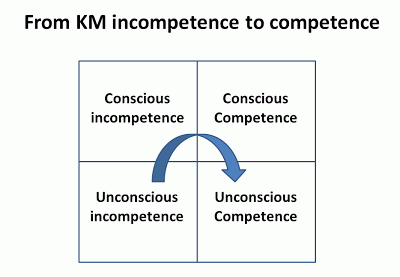Spirituality 2.0
Now this is going to be a rather exotic post! Last Sunday I visited a friend of mine who is working as a pastor. It was my first Sunday service within almost a full year, and after the event we engaged into a discussion about the cultural change that is happening in faith-based communities.
Apparently there is a movement in christian communites which tries to adapt spiritual life to a postmodern reality and that shows stunning links to the discussion about the knowledge age. To one extent, the movement called "Emerging Church" or "Emerging Conversation" emphasizes the importance of decentralized networks and social communities for church life, promoting flat hirarchies, an inclusive participation of laymen and innovative ideas in spiritual service and teaching. On a second glance, however, the cultural change goes much deeper. The approach not only tries to communicate a well-known message in new forms, it acknowledges that spirituality and faith itself are changing (and have to change) in a postmodern mindset. It is about a pluralistic approach to religion and spirituality which emphasizes the postmodern rejection of absolutes and metanarratives. It is top-down prescribed truth vs. subjective and community-based experiences of "truths". The implementation of this concept is also closely linked to the information and knowledge revolution with its decentralized flows of knowledge sources. The whole movement is evolving and communicating largely over the internet with extensive use of blogs and the establishment of international community networks. My friend told me that while he was learning from teachers and acknowledged church leaders 10 years ago, today his spiritual concepts are being shaped and constantly evolving by enganging with the peer-to-peer community over the internet at least for 1h a day. That is a dramatic shift in how people live and develop their faith.
The besteller concept of "The Starfish and the Spider" very much applies to this cultural change within faith-based organizations. There is no "head" of the movement, no authority enforced rules and no top-down dogma. It is multi-stakeholder, open social networks. It's Spirituality 2.0. Not only in it's organizational form, but very much with respect to the cultural paradigm shift towards a new way how individuals think about faith and church. Which is an exact reflection of how the philosophical implications of the knowledge age affect society as a whole.
The individuals enganged in this process are actually very well aware that they are part of a bigger transition of the cultural mindset. They are already children of the knowledge age. Clearly my friend is, who was telling me with a grin at the end of our conversation: "If you want to know more, just surf the net where ever it will lead you. Because actually, the web 2.0 is a metaphysical existence on it's own which you can confide in once in a while..."
(See also the article "Confessions of a postmodern mind" of my friend at http://www.futurefaith.de/text.html)
Apparently there is a movement in christian communites which tries to adapt spiritual life to a postmodern reality and that shows stunning links to the discussion about the knowledge age. To one extent, the movement called "Emerging Church" or "Emerging Conversation" emphasizes the importance of decentralized networks and social communities for church life, promoting flat hirarchies, an inclusive participation of laymen and innovative ideas in spiritual service and teaching. On a second glance, however, the cultural change goes much deeper. The approach not only tries to communicate a well-known message in new forms, it acknowledges that spirituality and faith itself are changing (and have to change) in a postmodern mindset. It is about a pluralistic approach to religion and spirituality which emphasizes the postmodern rejection of absolutes and metanarratives. It is top-down prescribed truth vs. subjective and community-based experiences of "truths". The implementation of this concept is also closely linked to the information and knowledge revolution with its decentralized flows of knowledge sources. The whole movement is evolving and communicating largely over the internet with extensive use of blogs and the establishment of international community networks. My friend told me that while he was learning from teachers and acknowledged church leaders 10 years ago, today his spiritual concepts are being shaped and constantly evolving by enganging with the peer-to-peer community over the internet at least for 1h a day. That is a dramatic shift in how people live and develop their faith.
The besteller concept of "The Starfish and the Spider" very much applies to this cultural change within faith-based organizations. There is no "head" of the movement, no authority enforced rules and no top-down dogma. It is multi-stakeholder, open social networks. It's Spirituality 2.0. Not only in it's organizational form, but very much with respect to the cultural paradigm shift towards a new way how individuals think about faith and church. Which is an exact reflection of how the philosophical implications of the knowledge age affect society as a whole.
The individuals enganged in this process are actually very well aware that they are part of a bigger transition of the cultural mindset. They are already children of the knowledge age. Clearly my friend is, who was telling me with a grin at the end of our conversation: "If you want to know more, just surf the net where ever it will lead you. Because actually, the web 2.0 is a metaphysical existence on it's own which you can confide in once in a while..."
(See also the article "Confessions of a postmodern mind" of my friend at http://www.futurefaith.de/text.html)



Comments